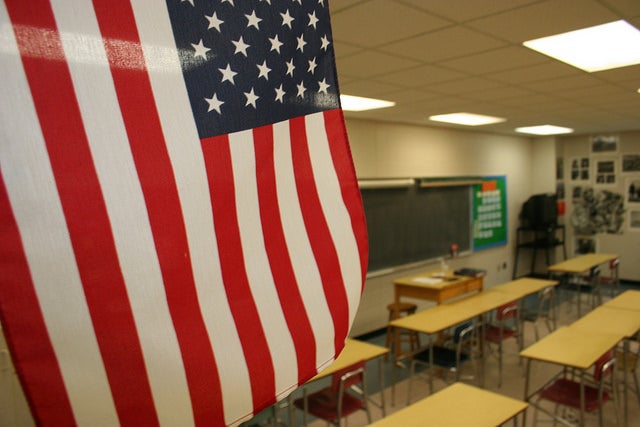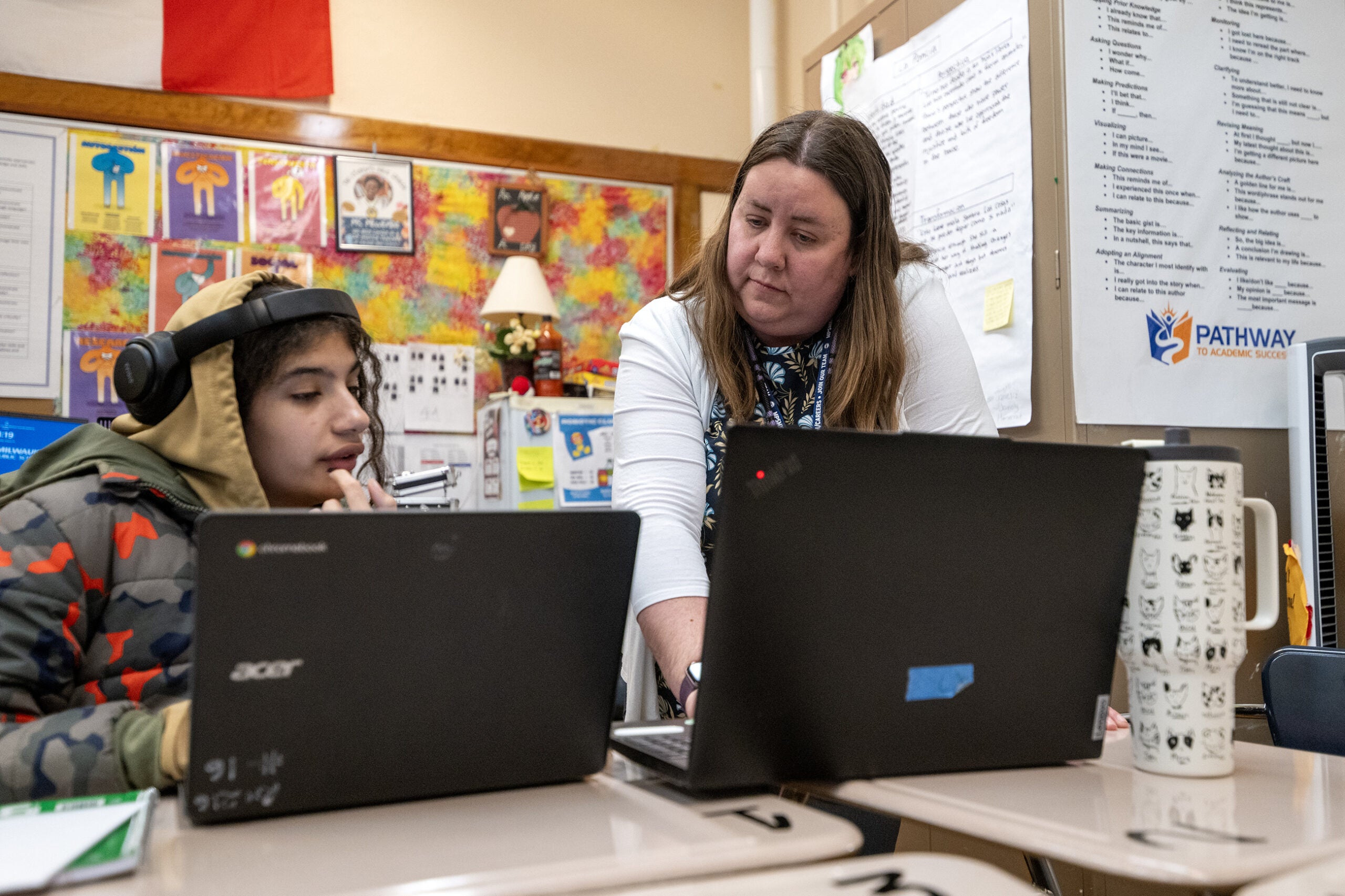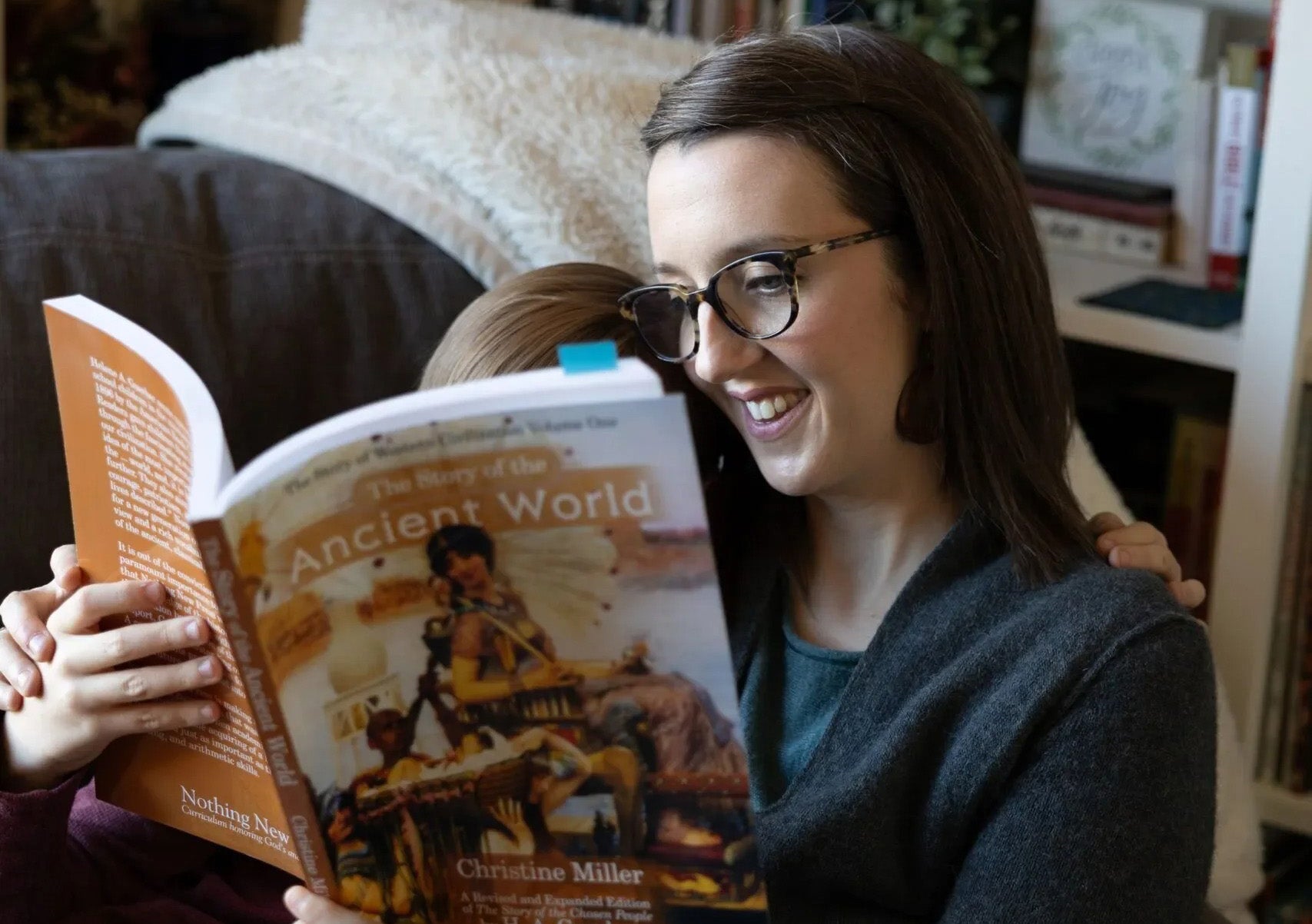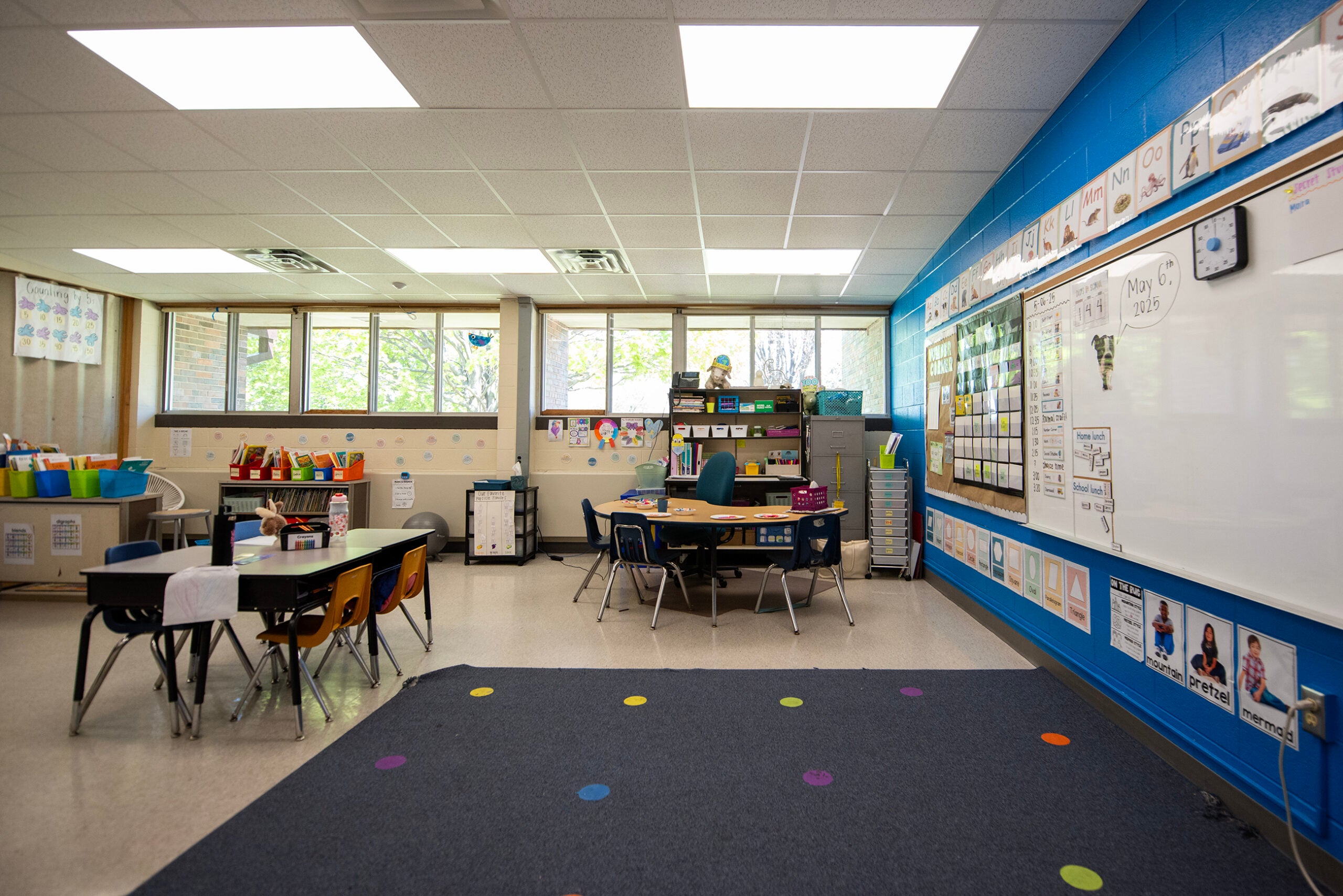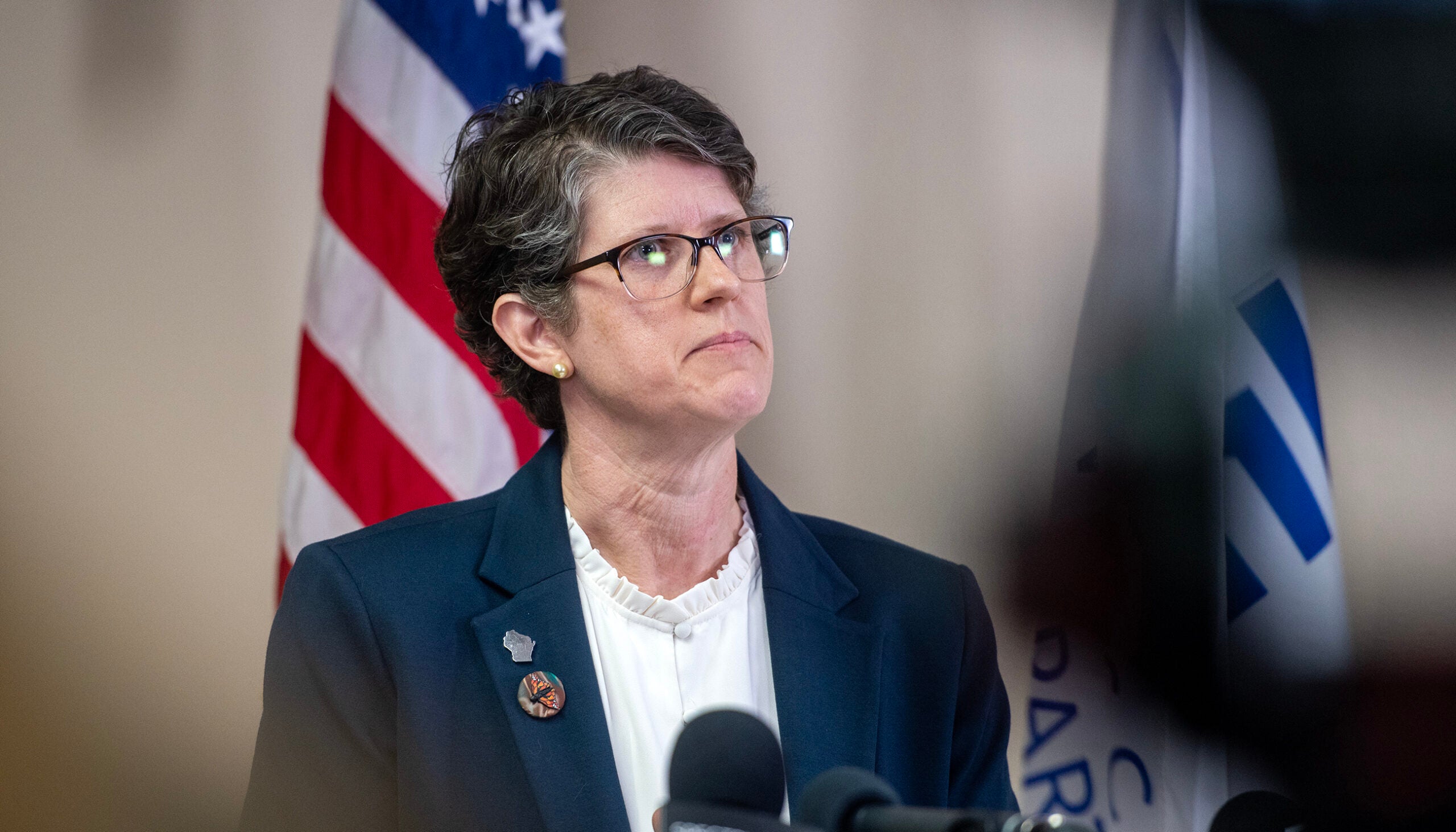Wisconsin legislators from both parties agree there is a greater need for civics education but are divided about whether a new bill would be the best path forward.
The bill would require the state Department of Public Instruction to develop a civics education curriculum for kindergarten through high school that emphasizes patriotism and contrasts the U.S. system of government with “communism, socialism, and totalitarianism.”
It would also revise the credits needed to earn a high school diploma. Currently, Wisconsin students must have three credits of social studies. The bill would carve out a half credit of that specifically for civics instruction.
News with a little more humanity
WPR’s “Wisconsin Today” newsletter keeps you connected to the state you love without feeling overwhelmed. No paywall. No agenda. No corporate filter.
State Rep. Amanda Nedweski, R-Pleasant Prairie, said data from the Annenberg Public Policy Center’s annual Civics Knowledge Survey illustrates the need for civics education.
“Only 5 percent of adults surveyed knew their rights under the First Amendment. Only one in 10 surveyed knew that the First Amendment includes the right to petition the government,” Nedweski testified at a hearing Wednesday.
“The survey results indicated that 34 percent of participants did not know the three branches of government. One in six didn’t even know one of the three branches,” Nedweski continued.
While Democrats on the Assembly’s education committee agreed with the scope of the problem, they expressed skepticism that this bill is the solution. Democrats questioned whether the bill duplicates what is currently being taught and called the bill “an unfunded mandate.”
“I absolutely agree with you,” said Rep. Kristina Shelton, D-Green Bay. “But it seems to me that where we currently (are), the requirements are within social studies — that already includes state and local government, and that civics is embedded in social studies.”
Emphasis on patriotism mirrors Florida bill
The legislation closely resembles a Florida bill passed in 2021.
It emphasizes the nation’s founding documents and includes a directive to curate oral histories that “provide portraits in patriotism” from diverse individuals, including “first-person accounts of victims of other nations’ governing philosophies who are able to compare those philosophies with those of the United States.”
Under the Wisconsin bill, the proposed civics education curriculum should include knowledge of other nations’ governing philosophies, “including communism, socialism, and totalitarianism, and an understanding of how those philosophies compare with the philosophy and principles of freedom and representative democracy essential to the founding principles of the United States.”
Nick Schweitzer of the Wisconsin Civic Learning Coalition testified in favor of the bill with some hesitancy.
“Most of it is straightforward and positive, but I do have a couple of reservations about that,” Schweitzer said. “Specifically, some subtle messages contained within. First, language in the prescribed curricula such as patriotism, freedom, the benefits of liberty that touts our American exceptionalism.”
Steve Masyada is the executive director of the Lou Frey Institute of Politics and Government at the University of Central Florida. He told WPR he helped develop some of the curriculum for Florida’s version of the bill.
“The content is certainly relevant and important for students to understand,” Masyada said. “Much of the controversy in Florida was centered around primarily the training for teachers rather than the curriculum in and of itself.”
The Wisconsin bill does not mention training teachers and includes no funding to develop or implement a new curriculum or a change in graduation requirements.
David Olson, the director of education at the nonprofit media company Retro Report, also spoke in favor of the bill as part of the Wisconsin Civic Learning Coalition.
Olson said he supports the bill overall, but pointed to some “odd issues.” The bill lacks funding to collect oral histories, he said, and he would like to see individuals included in such a project from systems of government other than those listed in the legislation.
“There are plenty of other government systems from which people may flee or want to come to the United States, and have things to say about them,” Olson said. “Personally, I think it would be a wonderful thing to have oral histories from a diverse set of Wisconsinites who talk about their political, social and economic reasons for coming to the U.S. I think that would be a marvelous thing for students to have access to.”
DPI opposes bill, says it’s already working on civics education
DPI provided written testimony against the bill. The department pointed to its work on developing plans for civics education and establishing a statewide network of civics fellows.
“(The bill) imposes enormous requirements on DPI without recognizing the efforts required by both local schools and the department,” the testimony said. “This legislature continues to bring forward proposals that dictate the actions of the department and local schools and districts, without an understanding of the cost in time and effort those changes require.”
Experts agreed that the department is already developing standards for civics education.
“I do encourage you, all members of the committee, to check out what we’ve produced for a K-12 Civic Scope and Sequence for the state of Wisconsin,” Olson said. “I actually don’t think it’s too far off from what this bill is proposing.”
Masyada agreed.
“I do find this curious if only because I know the Wisconsin Department of Public Instruction has been working on civics for more than a year,” he said. “DPI has already been ahead of the game.”
Wisconsin Public Radio, © Copyright 2026, Board of Regents of the University of Wisconsin System and Wisconsin Educational Communications Board.

